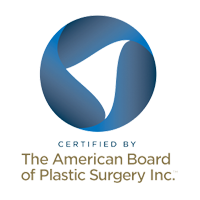Plastic surgery has improved over the years, and there are many reasons why it remains so popular. In fact, PR Newswire shows that the cosmetic surgery sector is growing globally at a compound annual rate of 7.2% and is expected to reach $938.8 million in five years. This means that not only are these procedures becoming more accepted but the techniques and technologies used to accomplish them have become much more refined. While you can expect to come out with great results from reputable plastic surgeons, it’s still essential to take the necessary steps to prepare. This involves avoiding certain activities, foods, and medications.
Preparing for Plastic Surgery
Knowing what to do and which things to avoid can help you have a better chance of reducing healing time, swelling, scarring, and the risk of infection. Your surgery will likely be scheduled months in advance. The moment the date is set, you need to start eating well, making sure to consume foods that will help the healing process, such as fruits and vegetables that are rich in vitamins. Protein is also essential because it helps create blood cells and collagen, the building blocks of your skin, bones, and tissues.
Two weeks before surgery, avoid alcohol and limit caffeine since they may affect bleeding. Active tanning, chemical peels, and retinoids should also be avoided before and after the procedure. If having surgery, it is best to stop smoking as it impairs healing.
Medications You Should Avoid
Apart from dietary and activity restrictions, there are also specific medications that you should avoid pre-surgery. However, be sure to approach this with caution; stopping certain prescribed medications immediately can pose various risks, so Dr Leigh Ann Anderson says it is important to consult with a physician before doing so. Our team of nurses, helps assess patients before surgery, and administer post-operative care. This involves helping you pause and resume your required medications safely before your plastic surgery procedure.
These are some of the medications you can expect to stop two weeks prior to surgery since they may cause abnormal bruising, bleeding, or thinning of the blood and skin. This can hinder the healing process or cause complications.
- Aspirin
Aspirin is a known drug that’s derived from willow bark. SymptomFind states that it’s useful in reducing fever and relieving mild to moderate pain from headaches, swelling, and the like. There’s even evidence that it can reduce blood clots, thus preventing heart attacks or clot-related strokes. However, it is this characteristic of the drug that also makes it dangerous when recovering from surgery. It’s best not to take aspirin before your procedure so that you can encourage healthy blood clotting. - Ibuprofen
Ibuprofen is an everyday painkiller commonly used to reduce aches such as muscle pain, menstrual cramps, and toothaches. However, it can also cause you to bleed more since it dilates the blood vessels. Excessive bleeding can hinder the healing process post-surgery. - Vitamin E
Supplements like vitamins seem harmless, but they can actually disrupt your rate of healing after a surgical procedure. Vitamin E, in particular, is associated with increased bleeding that leads to hematoma (severe bruising). This can lead to serious complications.
You will be provided with an extensive list of medications to avoid, so be sure to read labels thoroughly to ensure they don’t contain any of the drugs listed. Like the medications listed above, many of these drugs should be avoided two weeks before and after your procedure. You will be instructed on how to properly stop and start taking these medications by a medical professional, especially if they are prescribed.
Post-Surgical Care
Knowing what to avoid after your surgery is just as important as preparing for it. For post-operative care, our What to Eat Before and After Plastic Surgery writeup warns avoiding foods with omega-3 fatty acids and sodium. Alcohol, smoking, and vaping should likewise be avoided.
No matter the procedure you’re having, you’ll feel your best and heal much more quickly if you take the proper precautions and steps. By avoiding these foods, substances, and medications, you’ll be through with recovery much faster than you know it.
Article written by Rosetta Juliet
Exclusively for Atagi Plastic Surgery and Skin Aesthetics



